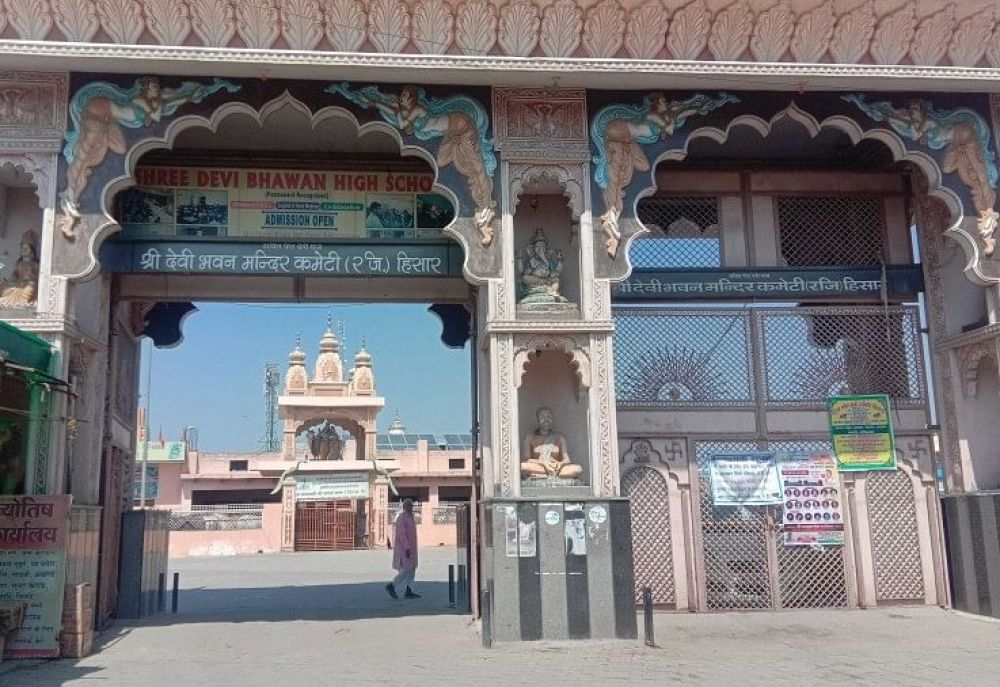

Nestled in the heart of Hisar, the historical city in the state of Haryana, India, the Devi Bhawan Mandir stands as a significant religious destination attracting devotees from all over the country. The city of Hisar itself has a rich history dating back to the days of the Indus Valley Civilization, and the temple is a more recent addition that has grown in prominence over the past few decades.
The establishment of Devi Bhawan Mandir is a relatively modern tale compared to the ancient origins of Hisar. Founded in the 20th century, the temple has been a center of spiritual activity and communal harmony. Dedicated to the worship of the Goddess Durga (often referred to simply as Devi), the temple has gained a reputation for being a locus of tranquility and spiritual healing.
It is the faith and devotion of the local population that has elevated this temple to its current esteemed status. Incorporating elements from various architectural styles, the temple's structure is aesthetically pleasing and is emblematic of India's traditional temple architecture.
The surge in the temple's popularity has been quite significant in the context of religious tourism. As word of the temple's spiritual significance has spread, the number of visitors and pilgrims to Hisar has steadily increased. The temple is particularly crowded during the Navratri festival, a nine-night festival that celebrates the various forms of Goddess Durga. During this time, the temple becomes a lively hub of cultural activities, including dance, music, and prayer ceremonies.
Devi Bhawan Mandir not only contributes to the local economy through tourism but also plays a pivotal role in preserving and promoting Hindu culture and traditions. The temple's serene environment offers a reprieve for those seeking solace from the bustle of everyday life.
In recent years, there has been an uptick in the number of tourists seeking more authentic and immersive cultural experiences. This has extended to religious tourism at Devi Bhawan Mandir, where visitors are looking to engage more deeply with the rituals and practices. Pilgrims are keen to participate in the customs and observances first-hand, such as offering prayers, participating in 'aartis' (devotional songs sung in praise of the deity), and receiving prasad (a devotional offering made to a god, typically consisting of food that is later shared among devotees).
The temple has adapted to these trends by facilitating better access to religious ceremonies for tourists and by providing information sessions that explain the significance of its rituals. The concept of 'spiritual tourism' is gaining momentum, with visitors coming to seek personal peace and introspection at the sacred site.
With the increase in visitors, the Devi Bhawan Mandir and the local authorities have been working toward managing the impact of tourism on the site and the surrounding area. There are continuous efforts to enhance infrastructure, improve facilities for pilgrims, and ensure the conservation of the temple complex, ensuring that the sanctity and aesthetic of the temple are not compromised.
Looking ahead, the future of tourism at Devi Bhawan Mandir appears promising, with plans to integrate digital technology for a more enriched visitor experience. Through initiatives such as virtual tours and online darshan (viewing) of the deity, the temple is tapping into the digital age to reach a wider audience, while still maintaining its rich cultural and spiritual essence.